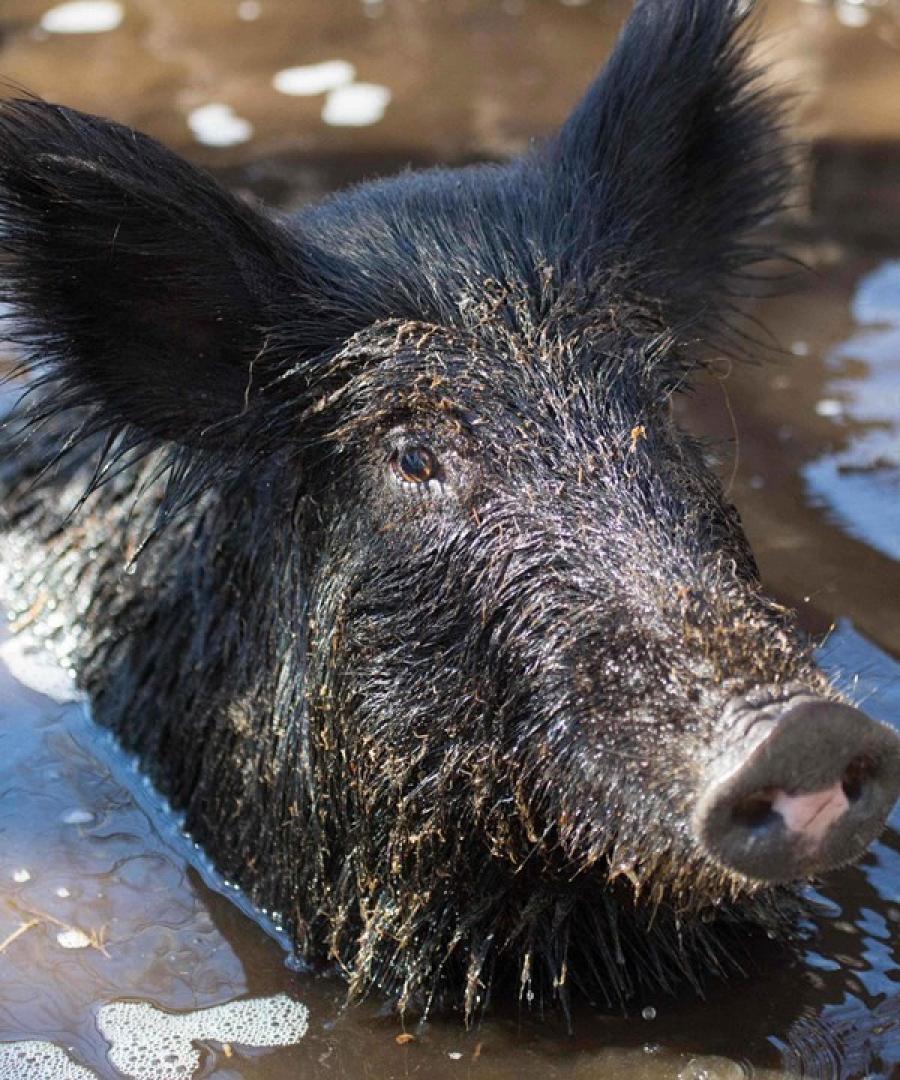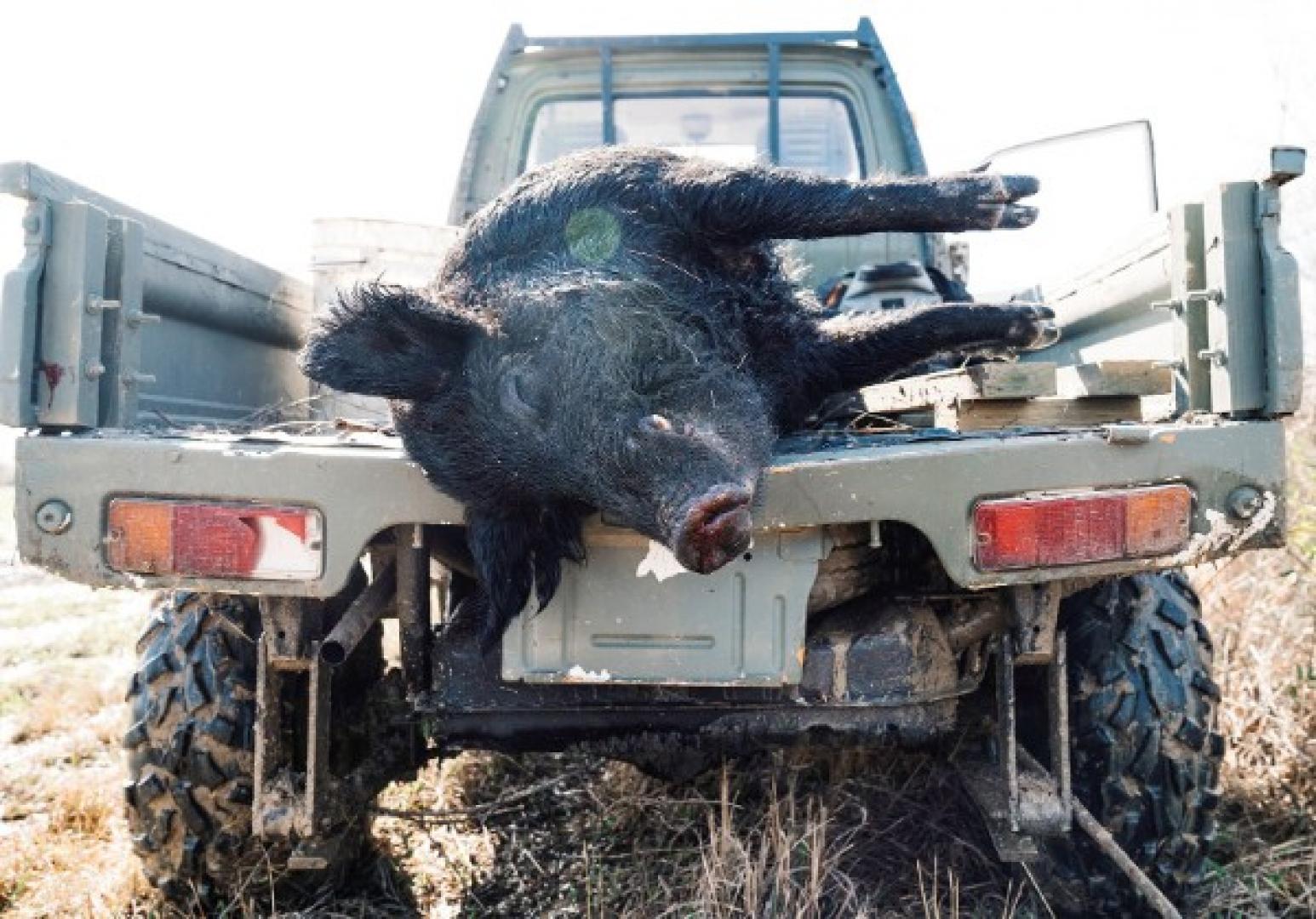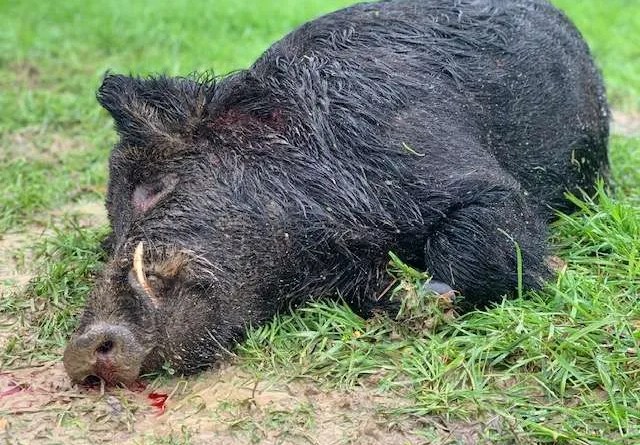Tactics
National Deer Association’s 5 Top Tips for Late-Season Deer Hunting
December 17, 2025 •iSportsman Staff
January 9, 2024
Another hunting season has come and gone, leaving behind lessons plentiful, and much to reflect on. While I did not harvest a whitetail in my home state, Louisiana, I did however, harvest quite a few hogs. Admittedly, when I first began hog hunting I was somewhat oblivious to the severe negative impact hogs have on nearly every ecosystem they frequent, but this year was different. I felt as though it was my duty as a hunter to do so after mounds of research and seeing first-hand the negative impacts they have on everything from agriculture, local ecosystems and beyond.
Wild hogs, wild boars, wild pigs…You won’t find anyone arguing over the correct terminology at camp. They seem to have made every corner of rural land their home. Whether it be brush country in Texas, the swampy marshes of Florida, the plains of Oklahoma or as far west as California. There isn’t a region, state, or country without wild hogs.
How did hogs get here? In the 16th century, European explorers would release boar hogs as they traveled through an area and hunt them for food when they returned back months or years later. In 1539 Spanish Explorer, Hernando DeSoto arrived in the New World with pigs for trade. Those pigs eventually found freedom. Take a Eurasian wild boar and domestic swine and you have a nearly indestructible hybrid on the loose.

Fast forward to the present day, The United states is now home to over 9 million wild hogs. This number is rapidly increasing and likely won’t slow any time soon. They have an extremely high reproductive potential and are a highly adaptable species. A sow is sexually mature between 4-8 months with gestation period around 110 days. This means one sow will have 2 litters per year averaging 6-12 piglets per litter.
Reproduction rate is only one reason why they spread rapidly through an area. They are highly adaptable with tough skin, superb sense of smell, are highly intelligent, and have few natural predators.
Most animals depend primarily on instinct for survival. However, hogs being highly intelligent animals will adapt and flourish, learning from past experiences.
This season I spent most of my time In Louisiana along the Mississippi Delta, and South East Texas. While the terrain is much different, the over population of wild hogs is not. I’ve mulled over this topic several times, talking to seasoned hunters, landowners, farmers and quite a few old timers. One thing that continues to resurface in conversation is the noticeable rapid increase in populations. Roughly two decades ago, hunters along the Delta saw hogs as a challenging game species to pursue, whereas now they’re seen as invasive and extremely problematic.
Some of the most commonly discussed issues include the destruction caused by constant foraging and digging in and around agricultural land and food plots, thus leaving less food resources available for native species, such as deer. They destroy land and crops through their constant foraging and digging, spread diseases and can be detrimental to local ecosystems as well as native species.

Another issue that is often overlooked is contamination to water resources. Because wild hogs do not have sweat glands, they frequent water resources and muddy areas to cool themselves off. This leads to contamination, death of beneficial aquatic plants, as well as bank erosion.
As far as predators go, hunters are at the top of a pretty lonely list. Whether it be hunting or trapping hogs it is a far cry from what is needed to make difference in numbers. In upcoming years, hunters will need to drastically ramp up the amount of pigs taken if we are ever able to get this problem under control.
